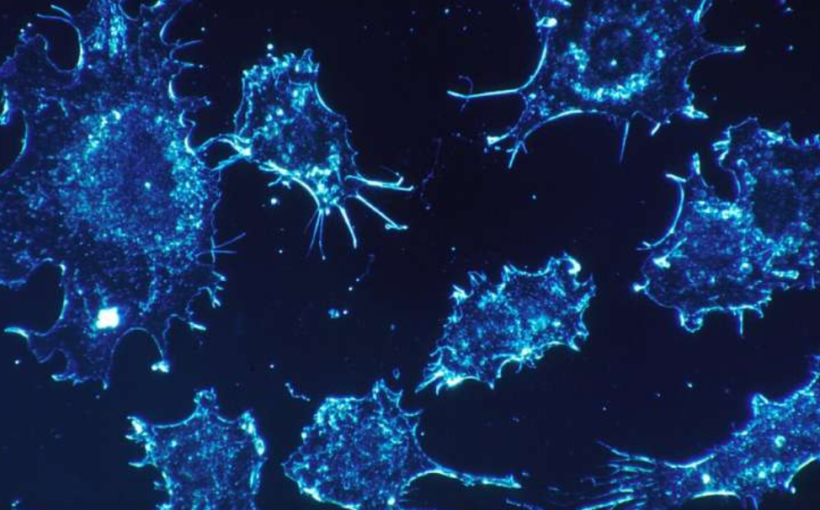Scientific evidence suggests that cancer can metastasize to other organs when either a single cell or a cluster of cells detaches from the original tumor and travels through the blood to another location, where it grows into a new tumor. Clusters seem to have a higher metastatic potential than single cells, and a report published in Nature Cancer shows new insights into what contributes to the clusters’ selective advantage.
The researchers found that clusters of tumor cells are more resistant than single tumor cells to being killed by natural killer (NK) cells, immune cells that specialize in surveillance and destruction of tumor cells. Being more resistant to NK cell-mediated destruction led to a disproportionally higher representation of cluster metastasis. The findings suggest that enhancing the natural ability of NK cells to eliminate circulating cancer cell clusters may provide a complementary approach to cancer therapy.
“We were working with different animal models investigating why tumor clusters seemed to be better at forming lung metastases than single cells, when we unexpectedly discovered that the clusters’ ability to metastasize appeared to be associated with the presence of competent NK cells,” said first author Hin Ching Flora Lo, graduate student in Baylor’s Integrative Molecular and Biomedical Sciences Graduate Program. She is a member of the lab of Dr. Xiang Zhang, professor of molecular and cellular biology and the Lester and Sue Smith Breast Center at Baylor.
The researchers determined that activated NK cells can eliminate both single cell and cluster metastasis, but they are more efficient at eliminating the former. The clusters have a selective advantage and, as a result, their contribution to metastasis is higher than that of single cancer cells.
“We also explored what mediated the clusters’ resistance to NK cell killing and discovered that cancer clusters seem to tone down the activity of NK cells against them,” Lo said. “Clusters display on the cell surface more molecules that inhibit the activity of NK cells and fewer that increase their activity. As a result, when NK cells bind to clusters to destroy them, the combined effect is reduced killing activity.”
This phenomenon may represent an additional survival advantage complementary to other previously known characteristics of cancer clusters, such as being resistant to chemotherapy.
“Our study highlights the importance of NK cells in immunotherapy. Activated NK cells act fast, and efficiently kill tumor cells. They use a killing mechanism that is similar to the mechanism T cells use, but recognition of the tumor cells is different. That’s one of the reasons we think that enhancing NK-mediated killing ability may provide a complementary approach in immunotherapy,” said Zhang, a member of Baylor’s Dan L Duncan Comprehensive Cancer Center and a McNair Scholar.
Molly Chiu, Baylor College of Medicine


